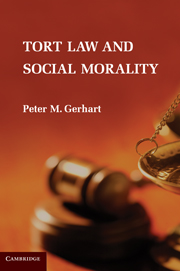5 - Rawlsian Consequentialism: Rawls and Social Cohesion
Published online by Cambridge University Press: 04 August 2010
Summary
To summarize the discussions in Chapter Four, Kantian philosophy establishes the standards one should use when thinking about one's projects and preferences in the context of the well-being of others: One should decide according to a maxim that is neutral and universal. If an actor makes a decision with sufficient neutrality and universality, the actor will be acting morally (and, I argue, the collective decisions made by all actors will lead to an efficient, fair, and stable society). When deciding whether to decide in terms of maxims that are neutral and universal, an actor may not think about the consequences of that decision; the actor's decision may depend only on the actor's desire to fulfill her duty to the social community. On the other hand, once an actor makes the decision to search for maxims that meet the tests of neutrality and universality, deliberation about such a maxim does not ignore the consequences of the various maxims from which the actor is choosing. The actor who would act morally must surely take consequences into account, for a prerequisite for moral thought is to take into account the consequences of one's decisions for the well-being of others. On the other hand, not all consequences of a decision count or are given equal weight. If the actor were to honor all consequences, the actor could well privilege consequences that affect his well-being in a way that would violate the standards of neutrality and universality.
- Type
- Chapter
- Information
- Tort Law and Social Morality , pp. 91 - 102Publisher: Cambridge University PressPrint publication year: 2010



